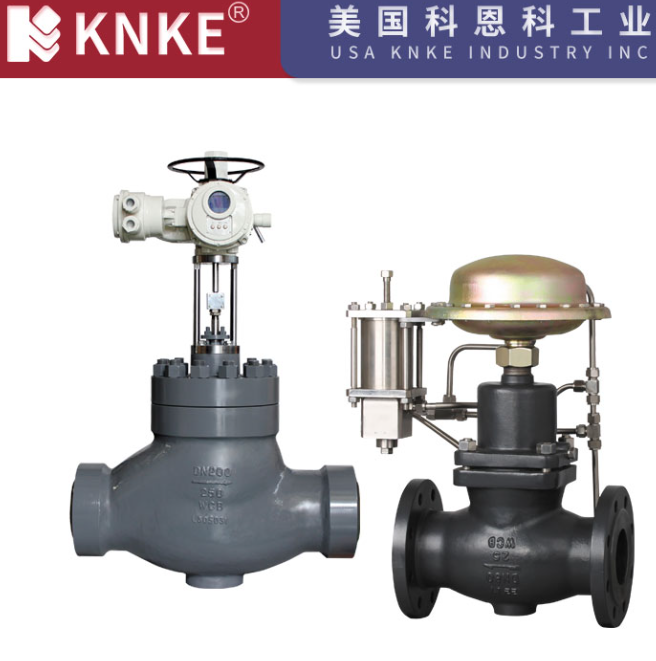The Application Scenarios of Control Valves
Control valves are crucial actuators in industrial automation. They function like a heart, precisely regulating fluid flow, pressure, temperature, and liquid level. These valves are key for stable and efficient production across many industries.
1. Oil and Gas Industry

Control valves are vital in the oil and gas industry.
- Extraction and Transportation: During extraction, they manage oil and gas flow, ensuring stable production. In pipelines, valves adjust pressure. This prevents overpressure or underpressure, thus ensuring safe transport.
- Refining and Petrochemicals: Refineries and chemical plants use control valves extensively. They precisely manage material feed rates, reaction temperatures, and pressures. This optimizes production and improves product quality. For example, valves control raw oil in catalytic cracking. They can also regulate cooling water to ensure product purity.
2. Power Industry
The power industry relies heavily on control valves, especially in thermal power plants.
- Boiler Feedwater Control: Control valves precisely regulate boiler feedwater. This ensures stable water levels, which is critical for safe boiler operation.
- Steam Temperature and Pressure Control: In steam turbine systems, valves adjust steam temperature and pressure. This optimizes generator efficiency and prevents equipment damage.
- Desulfurization and Denitrification Systems: Environmental equipment uses control valves too. They manage the injection of desulfurizers and denitration agents. This ensures pollutant emissions meet standards.
3. Water Treatment and Wastewater Treatment
Water treatment is essential today, and control valves are crucial.
- Water Supply Systems: In cities, control valves manage water flow and pressure. This ensures a stable water supply and reduces pipeline leaks.
- Wastewater Treatment Plants: Control valves regulate wastewater flow between treatment units. This optimizes treatment and ensures water quality. For instance, they control air flow in aeration tanks, impacting microbial activity.
4. Food and Beverage Industry
The food and beverage industry demands high hygiene and precision. Control valves are indispensable here.
- Fermentation and Mixing: In brewing, dairy, and beverage production, valves precisely control temperature and pressure in fermentation tanks. They also manage ingredient ratios. This ensures product quality and taste.
- CIP Cleaning Systems: Furthermore, control valves manage cleaning solution flow and temperature in Clean-in-Place (CIP) systems. This ensures thorough equipment cleaning, meeting food safety standards.
5. Metallurgy Industry
The metallurgical industry has complex processes needing high precision.
- Blast Furnace Ironmaking: Control valves manage air supply and fuel in blast furnaces. This maintains stable temperature and atmosphere. Thus, it improves pig iron output and quality.
- Continuous Casting and Rolling: In continuous casting, control valves regulate cooling water flow and temperature. This ensures proper cooling rates for steel products, preventing defects.
6. Pharmaceutical Industry
The pharmaceutical industry has the strictest demands for cleanliness and precision.
- Reactor Control: Control valves precisely manage reactor temperature, pressure, and feed rates. This ensures stable drug synthesis and product purity.
- Sterile Environment Control: In sterile production, valves control clean air flow and pressure. This maintains the cleanroom’s classification, preventing contamination.
In conclusion, control valves are found in nearly every industry needing fluid control. They receive signals from control systems. Then, they precisely regulate fluid flow, pressure, temperature, and level. This achieves automated, intelligent, and efficient production. As industrial technology advances, control valves will diversify further, meeting ever more complex control needs.
